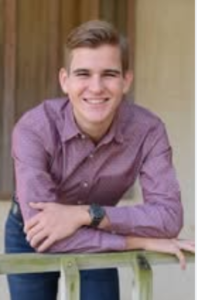J.B. Speed School of Engineering Professor Larry Tyler of Louisville, Kentucky has sadly passed away. He died on Tuesday 5th November 2024 after battle with congestive heart failure. He was confirmed dead through a post that reads “RIP to one of the greatest educators in American History. This man loved Calculus more than any human since Gottfried Leibniz and Isaac Newton.”
Larry Tyler Education
Dr. Larry D. Tyler, a respected academic and professional in the fields of engineering and mathematics, made significant contributions to both education and research over his career. He was a professor in the Department of Engineering Fundamentals and held an associate appointment in the Department of Mechanical Engineering, where his multidisciplinary expertise helped bridge the gap between engineering, mathematics, and physics. Dr. Tyler’s academic journey, which spanned decades of study and research, reflects his passion for advancing knowledge across multiple scientific domains.
Dr. Tyler’s academic path began at the University of Louisville, where he earned his Bachelor of Engineering (B.E.) in Mechanical Engineering in 1963. After completing his undergraduate degree, Dr. Tyler further honed his intellectual pursuits by studying mathematics, obtaining a Master of Arts (M.A.) in Mathematics from the University of Louisville in 1967. Recognizing the importance of integrating various scientific disciplines, Dr. Tyler continued his education, earning a Master of Engineering (ME) in Mechanical Engineering from the University of Louisville in 1976.
Larry Tyler Career
Dr. Tyler’s educational journey culminated in 1985, when he earned a Ph.D. in Engineering Physics from the University of Louisville. His Ph.D. dissertation, which drew upon principles from both engineering and physics, showcased his interdisciplinary approach to solving complex scientific and engineering problems.
Dr. Tyler’s teaching career was equally distinguished. As a professor in the Department of Engineering Fundamentals, he played a vital role in shaping the educational experiences of students who would go on to become engineers and scientists. His position in the Department of Mechanical Engineering further reinforced his commitment to fostering a deep understanding of engineering principles while encouraging students to apply interdisciplinary approaches to problem-solving.
Throughout his career, Dr. Tyler remained committed to both learning and teaching. He continually sought to expand his knowledge in various fields, reflecting his belief that the integration of multiple disciplines was crucial for solving contemporary engineering problems. His multidisciplinary expertise allowed him to contribute not only to engineering education but also to the broader academic community.
Dr. Tyler’s work as both a teacher and researcher reflected his belief in the importance of collaboration and intellectual curiosity. His ability to navigate between the worlds of engineering, mathematics, and physics made him a valuable asset to the University of Louisville and the academic community at large.



